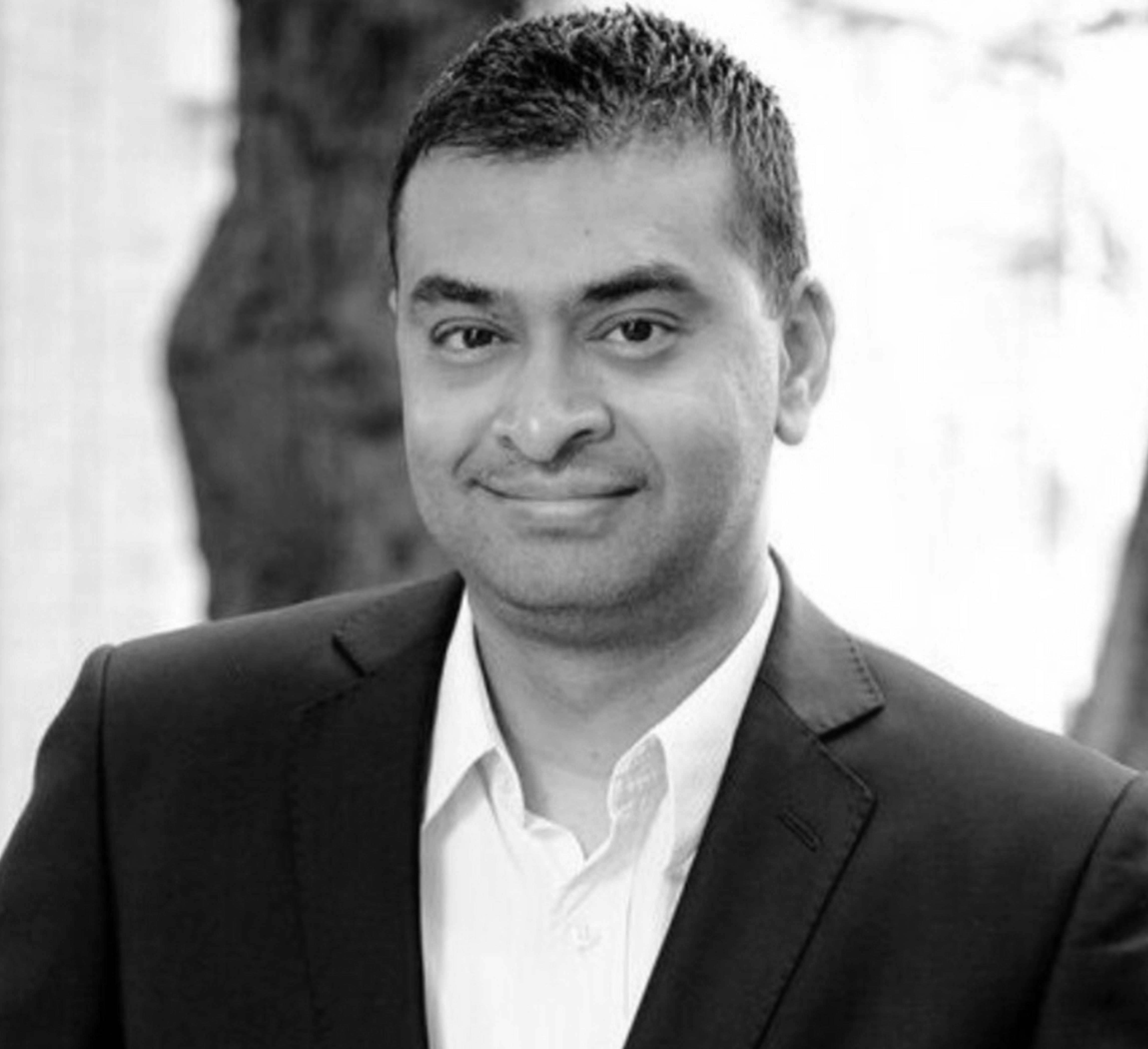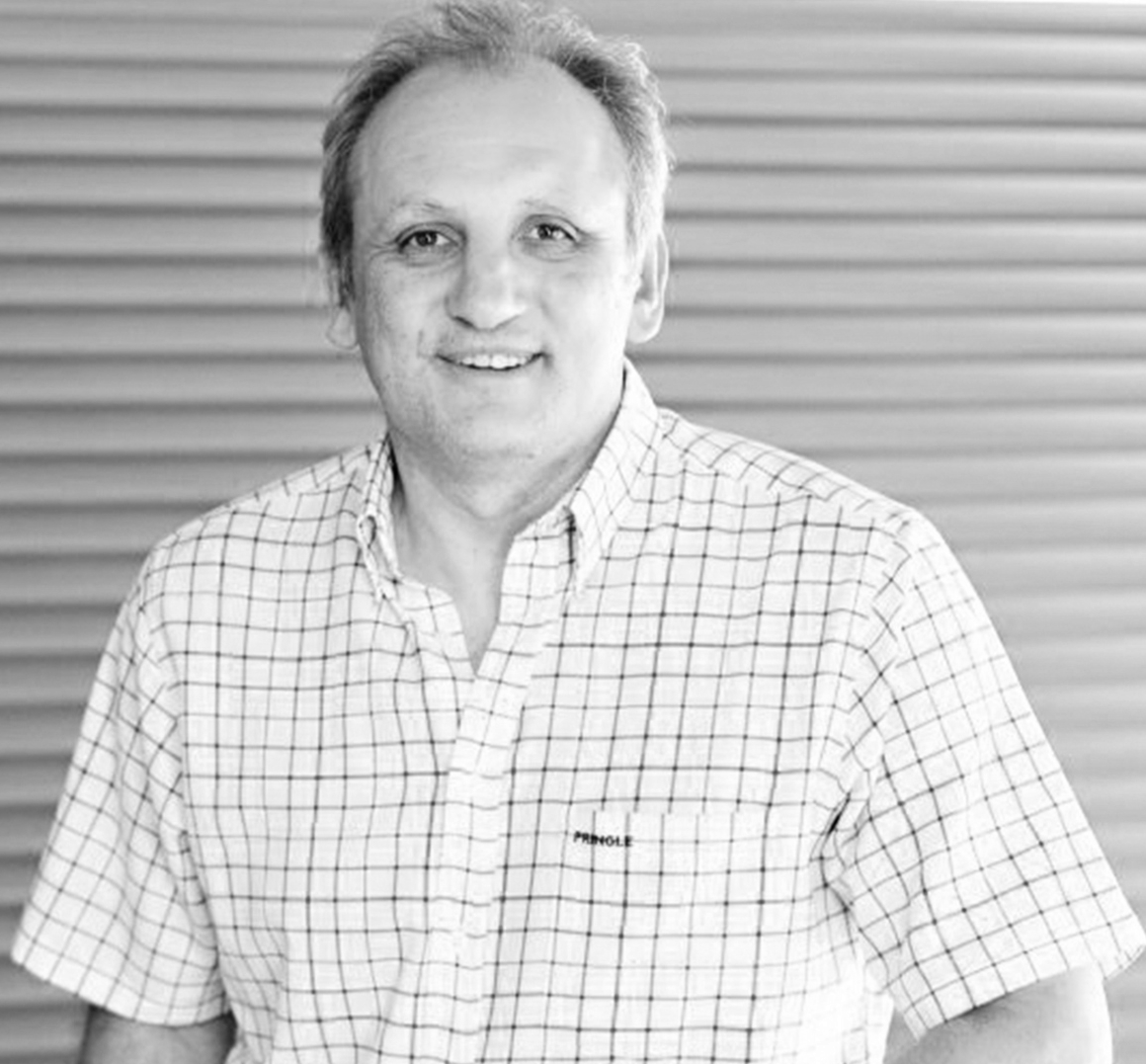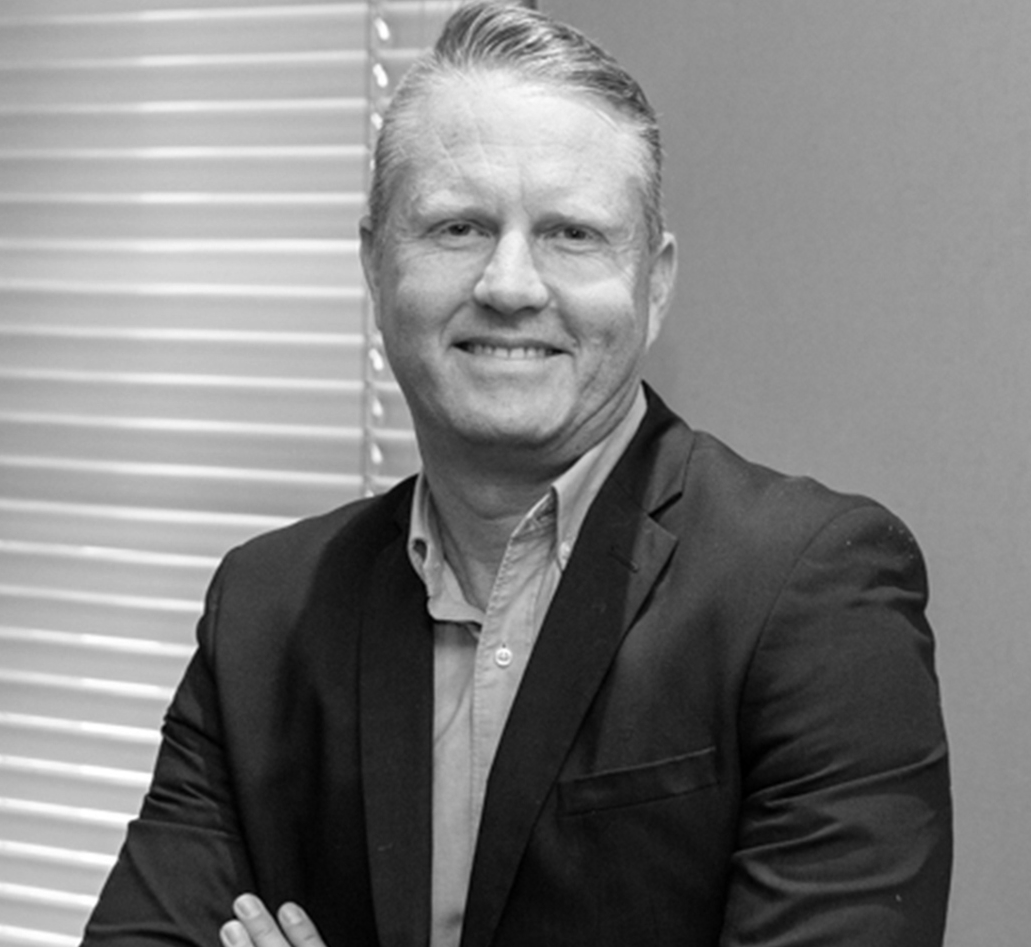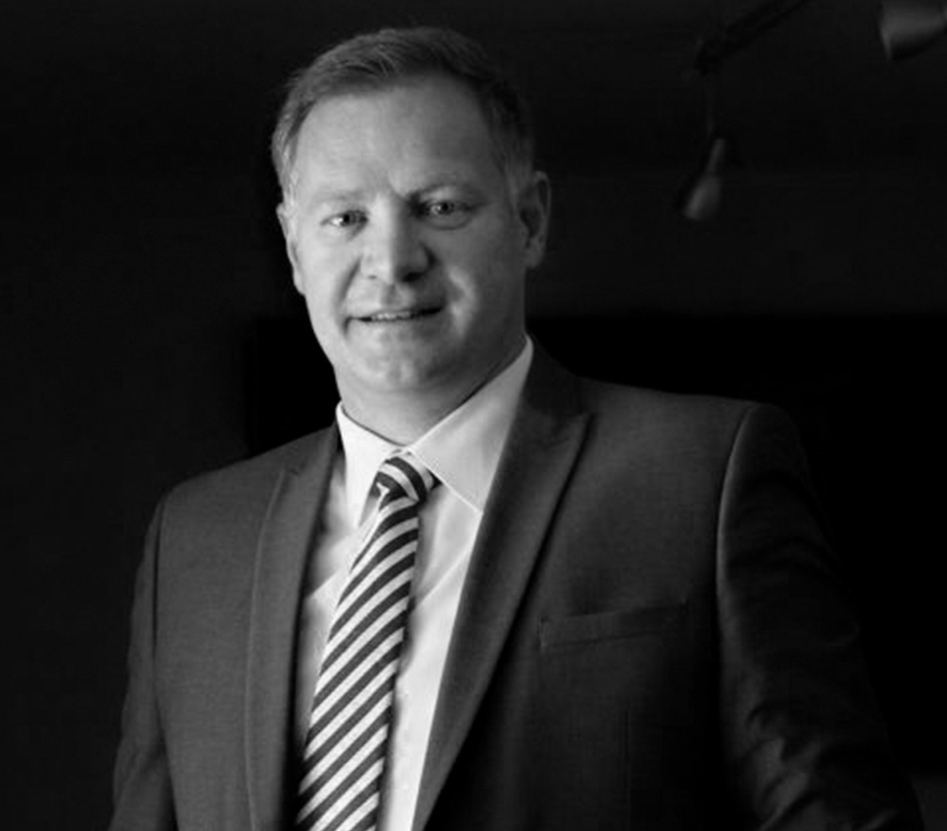14: Shabeer Khan
CFO: Department of Trade and Industry
Having achieved record levels of financial performance and the DTI’s first ever clean audit, Shabeer Khan is a sterling example of how a professional skillset can bolster a government department.

CIARAN RYAN: This is CFO Talks and today we are talking to Shabeer Khan, chief financial officer at the Department of Trade and Industry, also known as DTI. Shabeer is a CA and a registered government auditor. He’s been nominated for several awards, including by the South African Institute of Chartered Accountants for their Top 35, that’s for top-achieving CA’s under the age of 35 and that was in 2014. In 2015 and 2016 he was nominated by CFOSA as chief financial officer of the year, also in 2016 he was nominated as public CFO of the year. Shabeer was previously senior manager at the Auditor General of South Africa, responsible for the audit of 17 different government departments and entities. He also worked at the United Nations as a team leader on various audit assignments. Looking at these accomplishments, they are quite considerable, he achieved the first ever clean audit for the DTI and successfully managed a R10 billion budget. He achieved record levels of financial performance by ensuring almost 100% expenditure of the 2015/2016 budget. He improved the quality of the annual financial statements and implemented 30-day creditor turnaround times with 100% compliance rates. He’s a member of the DTI executive board and audit risk and ethics committees. That’s quite a list of accomplishments, so we are delighted to be joined by Shabeer Khan. Welcome Shabeer. Can we start by delving a little bit into your background and how you got started on the road to becoming first a chartered accountant and then a CFO.
SHABEER KHAN: Thanks Ciaran and thanks for the opportunity to be on CFO Talks. My career started off when I finished school, my dad, who has a retired schoolteacher, encouraged me to further my tertiary education. Being a schoolteacher he instilled the principles of education in all his children and I think that was quite an important investment by my parents in my future. My dad always believed that education is one of the key fundamental pillars of growth and for him it’s the key to life in any career. I studied at the University of the Witwatersrand, commonly known as Wits, and once I finished my degree and my honours, what they call CTA now, I started off as an article clerk at a small auditing firm in Rosebank called Faizel & Associates at the time. When you start your articles you get a better understanding of the fundamental principles, it’s all about practicalising the work and studies that you have done into basic work and accounting principles. From there I had the privilege of working at the Auditor General and I see that as an important part of my career because that’s where I learnt a lot in terms of not just being an auditor or an accounting professional but also learning the basic principles of leadership and teamwork because that’s important in any organisation. At the Auditor General I was promoted to senior manager and that’s literally what you call an engagement partner in any audit firm, where you are actually given the responsibility of a portfolio of audits from beginning to end and you are responsible for the quality and audit outcomes. So it was quite an important position within the Auditor General. While there I also had the privilege of going on numerous United Nations assignments. At the time the Auditor General of South Africa had a contract with the United Nations, it was quite a different type of experience because we had the contract for the peacekeeping audit and literally we went to parts of the world that a normal person would not normally go to.
CIARAN RYAN: Like what? What places were you going to?
SHABEER KHAN: I’ve been to Western Sahara and I have been to Kosovo. I did have quite a nice time at the Auditor General but after nine years and feeling that I needed a change in career I joined DTI as the chief financial officer. This was quite an important task and responsibility because at the time there weren’t many chartered accountants going into government. Everyone saw government as a risky employer. For me it was an important but in hindsight a very strategic step towards this position and it has grown me as a person, both professionally and individually, and I can honestly say that it was one of the best job movements I have made in my career.
The Auditor General
CIARAN RYAN: That’s interesting. Can we talk for a minute about your time at the Auditor General’s office, it’s worth mentioning that the Auditor General is about to receive additional powers to enforce recommendations and to chase down missing money. Is this sufficient, do you think, to bring greater levels of compliance at government entities, which, let’s face it, don’t have the best record when it comes to clean audits.
SHABEER KHAN: The Auditor General as the Supreme Audit Institution is not your normal audit firm. They’re involved with a lot more than just providing an audit opinion. In fact, they are tasked with also ensuring that government meets its service delivery objectives and it includes ensuring that there is compliance with the laws governing the government’s finances. So I think there’s a lot more that they do than just a normal audit firm. But what I have seen during my time in the Auditor General, in the past you would have measured your performance by ensuring that you’ve delivered an audit report. But during my time at the Auditor General I have actually seen that there has been this evolvement in terms of their role and their role towards ensuring clean governance, better financial management across government and this was quite an important vision or different type of step that they have taken because this allows them to engage a lot more with management and the executives of all national departments for them to also understand the importance of audit outcomes. So for me I’ve seen that it’s one of the things that has evolved and I think they play an important role towards the number of clean audits we are seeing in government. The way that they have been quite successful is that they’ve been making a lot more recommendations that are aimed at addressing audit findings and this for me is to ensure that there are audit outcomes, better governance and better financial management in the public sector. What I have also seen and I think where the Auditor General has requested Parliament to look at their roles and responsibilities and the additional powers they have requested is because they have been making these recommendations for a number of years but these have been largely ignored by those who are responsible for actually implementing these recommendations. One of the key things going forward is that once they actually make these recommendations they will be able to enforce it in a way that government departments will now be instructed to actually implement these recommendations. I think that’s quite important because at the end of the day we all want to live in an environment where there is good financial management, good governance because if those basic fundamentals are in place it actually means better service delivery to our citizens. So I think that’s quite important. One of the key things also is, as part of these recommendations, is that they can also at some point where they feel that the state is not taking their findings seriously enough, they can also issue a certificate of debt, which means that they can hold a person liable in his personal capacity for certain levels of irregularities in the system. So I think it now puts a lot more pressure on people to do the right thing. I think with all that’s happening at the moment, all the stuff that we’re seeing at the moment, I think it’s quite important that you send out the right signal.
CIARAN RYAN: Yes, I see that IRBA, the Independent Regulatory Board of Auditors, they’ve recently been given search and seizure powers, which is quite radical. They can actually go into companies, I guess with a warrant, and seize whatever they need in order to complete an audit. I don’t know if the Auditor General has those kinds of powers but it seems that we’re moving in that direction.
SHABEER KHAN: Yes, IRBA as the regulator for auditors across the board is slightly a different role, in fact they don’t actually regulate the Auditor General’s office but they regulate all audit firms who are registered as RA’s or registered auditors in the system. One of the key things and I think where the powers have been given is around ensuring that the auditor themselves are also held responsible for a lot of the things that are happening. I think we have been seeing not just in the public sector but also in the private sector a lot of fraud and corruption. I think IRBA is making a certain pronouncement that as an auditor you need to be held responsible or be more accountable for some of the things that are happening out there. So these search and seizure powers actually allow them to go and get records in terms of the audit files, in terms of certain recommendations, certain audit procedures that they should have performed that were not performed on an audit. So I think all these additional powers allow the profession, the Auditor General and the society at large just to ensure there’s a lot more accountability. One of the key things to mention to you from a DTI perspective is we see all of these improvements, both at the Auditor General and at IRBA as important steps towards improving our ecosystem. The reason why I say this is previously our accounting and auditing profession was rated number one worldwide in terms of the World Bank standards, in terms of our profession. So with the various corporate scandals involving some of the chartered accountants I think we have slipped down from number one to number 30.
CIARAN RYAN: Wow.
SHABEER KHAN: The president as part of our World Bank ratings, in terms of the ease of doing business, he has actually in the State of the Nation Address has given us a target of saying we need to be within the top 50. At the moment we are number 84 in the world.
CIARAN RYAN: Sorry, number 84 in terms of what?
SHABEER KHAN: In terms of the World Bank ratings, so South Africa is rated number 84 in terms of the ease of doing business. One of the key indicators within this rating is the accounting profession and the auditing profession. Previously we were number one and now we have slipped down to number 30.
CIARAN RYAN: Wow, okay.
SHABEER KHAN: The last thing also to mention about the Auditor General is one of the key things which we are also pursuing with them is the areas of localisation. You would have seen some of the scandals around some of the state-owned entities’ procurement, where largely some of the big rail procurement and freight procurement should have been done through local suppliers but were actually done through foreign suppliers. So with these additional powers it actually puts a lot more focus on ensuring that all these local content requirements are now enforced, which the Auditor General will ensure that it does happen. If not, there be will consequences now in the system.
DTI’s first ever clean audit
CIARAN RYAN: Let’s turn for a minute to the DTI, where you are currently chief financial officer. You achieved the first ever clean audit at the DTI, explain to us what did that take to get done and how long did it take to achieve the first clean audit?
SHABEER KHAN: One of the key things of a clean audit is just the understanding of what it means. So a clean audit is not something that is pursued with the private sector because they don’t have the same service delivery objectives like the private sector or a normal corporate. But I think what was quite important at the DTI was ensuring that the leadership and the executive at the DTI understand what a clean audit means and literally once we’ve managed to get that basic understanding in place it became a lot easier for us to implement the turnaround strategy. We in the DTI have largely been successful because a lot of the basic foundation was laid when I joined. I think if you look at when the minister was in Parliament and when we addressed the portfolio committee on the DTI’s response to the State of the Nation, one of the key things he mentioned is the clean audit and he said it’s not something that is handed to you on a platter but it took a lot of hard work and dedication to achieve this. For me, personally, when I was first asked about how did DTI manage to achieve this I always said it was lots of late nights and lots of coffee but for me it really took a dedicated and committed team because it was about setting a target and a standard, which needed to be met. For me it was not an easy road and at times it seemed almost impossible but I think through the determination of the team we were largely able to pursue it and at the end it was all worth it. We are currently on clean audit number three, so we’ve moved a long way from the first clean audit and I think we are well on the way to achieve our fourth one. For us the clean audit is all about improving the discipline because if you’ve got the discipline in the system everything else falls into place. For us it was just a few basic things like preparing and reviewing regular financial reports, implementing an internal control unit, getting the basics right, producing financial statements of the highest quality and I think the most important thing in this environment is ensuring compliance with the supply chain legislation. So once these basic principles were in place a clean audit was inevitable.
CIARAN RYAN: I suppose it’s fair to say you’ve got some experience in cracking the whip and getting systems in place and then having those systems complied with. I imagine that there’s also an element of pushback from some individuals when you start straightening things out in any organisation, not always because of corruption but because people are resistant to change and old habits can become entrenched. Did you experience this and how did you handle it?
SHABEER KHAN: The key thing at the DTI was getting the leadership buy-in and with having a minister like Minister Rob Davies, who is so passionate about getting a clean audit, he made my job a lot easier in driving this clean audit. So a lot of the cracking of the whip was actually done by the minister himself because he set this target and he requested every single person to work towards achieving this. So it wasn’t something too difficult from my side but I think where we needed a change was in the mind shift, people needed to understand that by just having this basic discipline and getting the basics right it wasn’t a very difficult thing to achieve. So those are the types of things we managed to do within the DTI.
CIARAN RYAN: So it was really being pushed from the minister himself down and that made it a lot easier.
SHABEER KHAN: Yes.
The role of DTI in SA’s economy
CIARAN RYAN: Just explain a little bit for people who don’t know what DTI, Department of Trade and Industry, is and what is its role in the South African economy?
SHABEER KHAN: The work that DTI does is focused on two or three large pillars, so one of the key things is by promoting industrial development, which we achieve through our annual industrial policy action plan. The second area is around building mutual beneficial global relations to advance South Africa’s trade, so it’s around our trade policy objectives. I think the last key one is about facilitating broad-based economic participation in the economy. This is largely to achieve more inclusive growth in the economy. So it’s largely around three fundamental pillars that are industrial policy, trade policy and BEE. When we responded recently in Parliament to the State of the Nation Address about what would DTI do and the minister focused on the current economic recovery, how do we actually promote export-led growth, he spoke largely around localisation and the importance of localisation and supporting localisation in the South African economy. I think the last big area was around investment, especially considering that the president has given us this US$100 billion investment target over a period of five years.
CIARAN RYAN: Is that the target of the DTI?
SHABEER KHAN: It’s a target of national government but within the DTI we have the investment programme. So literally it’s all about mobilising the entire government towards achieving this big investment target. I wouldn’t say it’s DTI’s target but DTI is the lead department in delivering on this target.
CIARAN RYAN: I see quite recently that President Ramaphosa said the fundraising, if you can call it that, or the drive to attract investment was going quite well and was ahead of target, so that’s quite encouraging.
SHABEER KHAN: Yes, just coming out of the investment conference from last year there were numerous pledges made around investment, so I think we are well on the way towards achieving this target but I think what’s quite important is how do you turn those pledges into actual investments. So those are the things that we are working quite closely with companies in actually realising these investments. But in saying that there is still a lot that can be done with the investment drive. I know there has largely been a narrative around investments from our local companies, where if you look at their balance sheets there are large cash reserves on their balance sheet but I think with the current uncertainty that’s out there a lot of companies have been reluctant to actually invest within the current economic climate. So I think there needs to be a lot more to be done to set the right climate, to set the right tone so that we actually do achieve a lot more of these investments coming from our local companies as well. With the DTI if you see some of our success stories, if you look at the auto sector you’ll see that is one of the flagship programmes. In fact, we recently announced that the programme will be extended until 2030 and one of the key things with this programme is we managed to attract most, if not all, the OEM’s from around the world to actually come to South Africa. Literally we’ve got over R40 billion of investment secured from these OEM’s and currently this sector accounts for 8% of GDP.
CIARAN RYAN: Wow, is it as much as that, 8%?
SHABEER KHAN: Yes, it’s quite remarkable. Currently the manufacturing sector I think is around 12% of GDP and out of that 12%, 8% is coming from the auto sector. So you can see that it plays an important role towards us achieving these policy objectives. In fact at the moment this sector is producing 600 000 per annum and what the new programme is aiming to achieve is we have set them a target of one million vehicles to be produced. In this sector there are over 100 000 jobs that they support, so it’s a very important sector. What the new programme also aims to achieve is that the local content that goes into these vehicles increases from 40% to 60%, which means that there is a lot more investment required in the component manufacture that goes into this. So now that we’re seeing a lot of the OEM’s investing in South Africa in a lot of the components that go into these vehicles. So with the new automotive masterplan we’re already seeing a change. I think for us when we talk about this programme it’s all about how do we replicate this programme across other sectors of the economy because I think for us if we can provide the same level of support across the board you will actually achieve a lot more. So there’s a lot that the DTI is doing on that front. One of the key things also is we are looking at and we’re promoting quite a lot is around the localisation because if you look at government, the state actually procures R840 billion a year from the private sector, so just think about the magnitude of that spend and if that’s spent correctly in the local economy just imagine the change that it can have on the local economy. So you’ll always see when the minister speaks he always speaks about localisation, he says we can achieve a lot just by using our government spend towards achieving a lot of these objectives. So I think it’s quite important and I think we’ve achieved a lot. The other big programme within the DTI is the black industrialist programme, which received a lot of media attention, but under this programme we’ve approved 131 projects, which assists black entrepreneurs and to date we’ve leveraged over R13.2 billion of private sector investment, it created around 9500 new jobs and I think these are some of the success stories that are coming out of the DTI. But in saying that there is a lot more that can be done and I think with the right focus and the right attitude there’s a lot more that can be achieved.
CFO’s need to be a lot more dynamic
CIARAN RYAN: If we can turn for a minute to the role of the CFO, which really seems to be changing at a very rapid rate and it’s not just about balance sheets and numbers, there’s a lot more strategic and executive intervention. Is this your experience and does the CFO today need to be equipped with a much deeper level of understanding of business and organisational dynamics?
SHABEER KHAN: Yes, I would say so, the demand on CFO’s has risen. I think there are numerous challenges that are facing most companies, most businesses, which are around tough global conditions, low levels of growth, fraud and corruption. I think this has placed a lot more emphasis and a lot more focus on the importance of CFO’s. So CFO’s need to wear different caps, I think it’s important that they need to be more than just the conventional CFO. But in saying that as well I always say that we can only achieve and be a flamboyant CFO if we have the basic fundamentals in place. If you look at a lot of the corporate failures that we’ve been seeing around it’s largely that the CFO’s there haven’t been able to do the basic fundamentals. So I think there is a need for a CFO to be a lot more dynamic, a lot more flexible but that can only be achieved if the basic fundamentals are in place. I would say that the future CFO’s need to have a lot more of a modern and a social approach to their job, which goes beyond dealing with numbers but rather developing business relationships, both within and outside the organisation, which for me is important if we need to expand and achieve the broader objectives of the company or the business.
CIARAN RYAN: What would you like to achieve in your career at DTI? Could DTI help resurrect the South African economy in a meaningful way or is this too ambitious a goal?
SHABEER KHAN: As the DTI we have actually achieved a lot. In fact, one of the key things that we have managed to do is actually turnaround the organisation, making it one of the leading departments in terms of setting certain standards. So one of the basic things was getting our 30-day payment system in place and as much as people think it’s a very simple thing but if you understand the impact of a system for paying suppliers on time and the importance that it has on small businesses, it’s huge. So I think for us we have achieved a lot but in saying that we have always believed in the principle of continuous improvement. We cannot say that we’ve achieved and that we have done well and yet we look across at other parts of government, which have not had similar achievements. So there’s a lot more that we can do but we have to see how we can influence and use our brand within DTI to influence others and to actually achieve successes in their areas as well.
CIARAN RYAN: I must say that’s quite impressive, 30-day payment because government has, from my discussions with various businesses that are suppliers to government, the payment record hasn’t been great. So the fact that DTI pays within 30 days is quite remarkable.
SHABEER KHAN: Yes, in fact, we have automated a system which we have replicated across government. So a large number of other state institutions are actually using a system that we have come up with. So for us it’s important by just introducing very basic principles in the system that can achieve a lot and that’s an important thing to do. One of the other things I would like to do while I am still in the DTI and government is to encourage a large number of other professionals, such as CA’s, to actually join government. If you look at the level of skills within government or the number of professionals in government versus those in the private sector, it’s chalk and cheese. So for me we need to create this skills base, especially as we move towards the fourth industrial revolution, we need to embrace technology, we need to embrace a lot of new things and this places a lot more emphasis on CEO’s, CFO’s, director generals and ministers because the world is changing and we need to see how do we improve and retrain the skills base that we have in government.
CIARAN RYAN: Finally, just to start wrapping up now, tell us about some of the key influences in your life, the books that you’ve read or the people who you’ve worked with or simply admired from a distance who influenced you.
SHABEER KHAN: One of the good things at the DTI and also at the Auditor General, it has allowed me to meet people in all walks of life. I have met leaders in industry who have inspired me to try harder and also people from different walks of life who have shown me that it is possible to make a difference in the lives of people around you. I wouldn’t say there’s one single person but I think it’s these leaders who have groomed me into the person I am today and these experiences, which cannot be graded on a scale because all these experiences and exposures have added value to my career, which I am grateful to each one to.
CIARAN RYAN: Last thing, what do you do in your down time and where are some of the places that you’ve visited that have fascinated you the most and why?
SHABEER KHAN: One of the key things that I am passionate about is staying fit, so I have got this morning routine of taking a jog in the morning before doing anything else. I love cricket, I love sport in general and when time permits I play action cricket. I also follow a lot of soccer, in fact my favourite soccer team is Arsenal, so a lot of people give me a hard time about that.
CIARAN RYAN: You’re going to get a hard time for that [laughing].
SHABEER KHAN: One of my favourite pastimes is reading, so I do read a lot. I read a newspaper every single day but for me it’s just about keeping in touch with the times. So those are the things that keep me sane. One of the other things is that I have got a family with young kids, so it’s just spending a lot of time with the kids, whether it’s playing in the garden or watching a movie with them, it makes family time a lot more worthwhile.
CIARAN RYAN: Great, thank you so much, Shabeer. That was fascinating talking to you and getting some of your insights from the public sector and your encouragement for professionals to move into the public sector like you have done. I think that’s a message that will go done quite well. Thank you so much for your time.
SHABEER KHAN: Ciaran, thank you so much and thank you once again for the opportunity.





